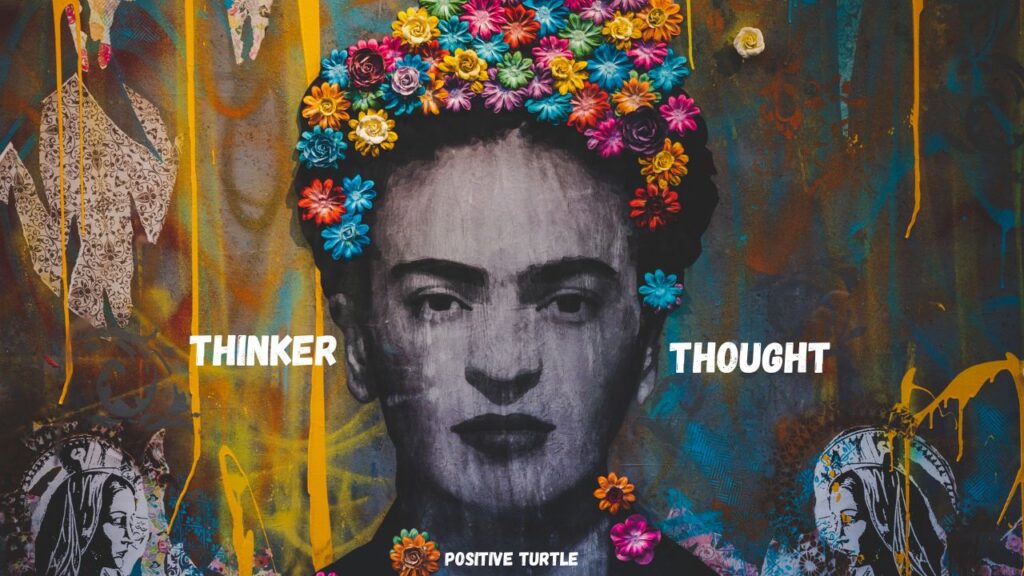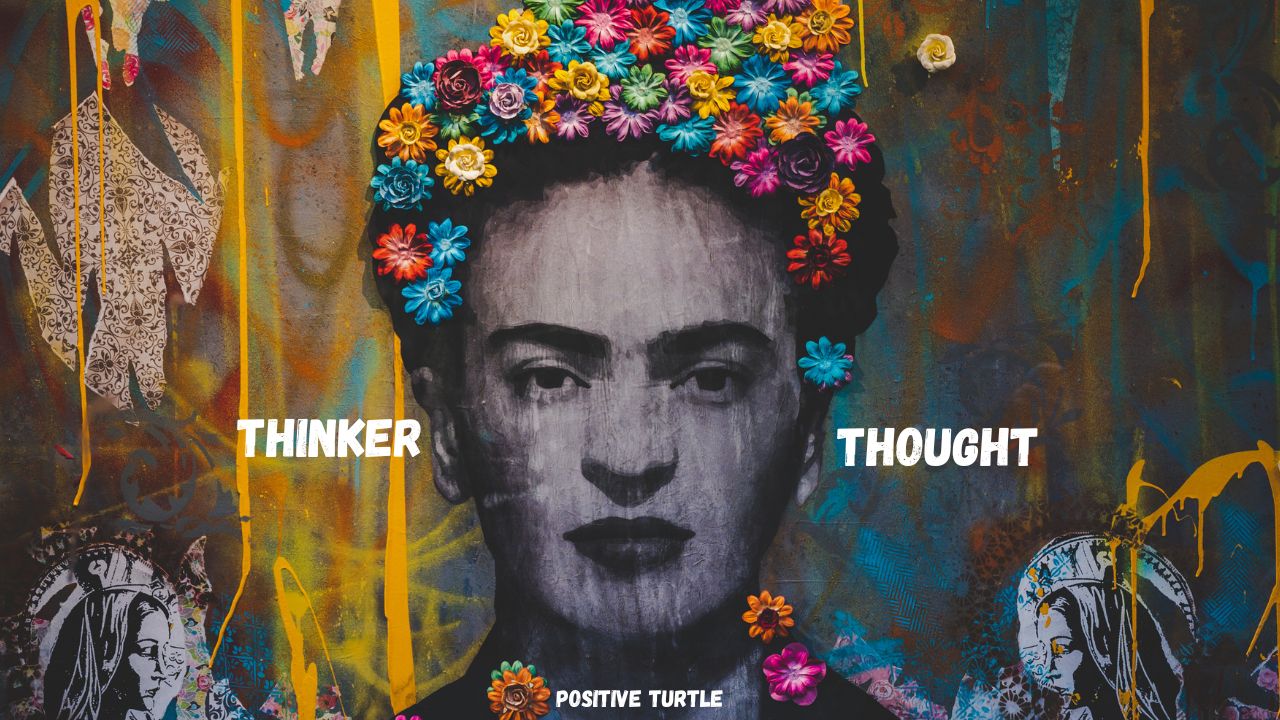
Who is a Thinker ?
When a child is born, they live in a state of pure innocence. They hear sounds without knowing what they mean. They look at things without labeling them. They are present in the moment, without thoughts or imagination.
But soon, we give this child a name. They are introduced to their surroundings and taught about “me” and “mine.” This naming marks the birth of the ego, and slowly, the mind begins to accumulate experiences, emotions, memories, and thoughts. The child, once pure awareness, starts identifying as an individual—separate from the world.
As time passes, this individual begins labeling experiences as good or bad. They interpret life not as it is, but through the lens of past memories. Every thought, every emotion gets recorded in the mind’s library. Life is no longer lived; it is analyzed, filtered, and compared. The past becomes the center of perception.
This is how a Thinker is born.
A Thinker is someone who sees the present through the fog of the past. Instead of directly experiencing life, they interpret it. Every moment is seen in relation to previous experiences, opinions, and conclusions. This creates a psychological center, a story called “Me.”
The Thinker lives in a house built with memories and personal beliefs. Their preferences, likes, dislikes, and thoughts revolve around a specific pattern shaped by time. This psychological identity is an ongoing story based on what has happened before. In essence, a Thinker is not living in the now—they are living in a memory.
Thinker and The Thought
When we observe our mind closely, we often see a thought, and we become aware of it. This attention to thought gives rise to the illusion of a “Thinker.” But is there truly a Thinker? Or is it just thought appearing with awareness? if there’s no thought, there’s no Thinker either.
The idea of a Thinker is born out of accumulated thoughts, knowledge, and experiences. When thought arises, we believe someone is thinking it. But the truth is—thought appears on its own. Then another thought appears, saying, “I thought this.”
This illusion strengthens the identity of the Thinker. We then begin to trust our thoughts like advisors. We follow them blindly, assuming they know what’s best. But maybe the real question is:
Who’s thinking the thought? Or is the thought thinking you?The Thinker is not separate from thought. The idea of “I am thinking” is a mental construction. True freedom lies in observing this illusion and living without being trapped in the past.
When we drop the identity of the Thinker, what remains is pure awareness—silent, alert, and present.
The Thinker’s Trap
The Thinker always reacts to incoming thoughts, analyzing them, labeling them, and forming opinions. This constant judgment creates inner conflict. We often don’t realize that the conflict in our minds is born from this habit of continuously interpreting thoughts.
When a thought appears, the Thinker tries to assess it: Is this thought right or wrong? Pleasant or unpleasant? This chain of analysis keeps the mind busy, and in that noise, peace gets lost. This is the root of psychological conflict—the Thinker is nothing but a product of thoughts.
All thoughts are formed from past impressions. And from those thoughts, the Thinker is imagined. Without thought, the Thinker disappears. Just like shadows vanish in light.
But this illusion of a Thinker gives rise to a sense of personal choice—what to like or dislike, what to accept or reject. This becomes the ground for a judgmental life: good and bad, right and wrong, high and low. All of it stems from conditioning based on memory.
We start believing: “This is how I am,” and “This is how life works.” But this belief is just a product of the past. Our actions too are never complete or fresh—they’re driven by old patterns, not present awareness.
Trapped in Repetition
As we grow up, the fresh innocence of our childhood mind is lost. We operate through past filters of experience. This keeps us confined in a cycle: same emotions, same problems, same reactions.
From the outside, life may appear to change—new clothes, school, office, relationships—but inside, we remain the same. We say things like, “I’ve always been like this,” or “This is how life is.” Each year feels like a repeat of the last. And we confuse this mental loop for real living.
The Thinker becomes comfortable in this repetitive life. It feels safe. It feels familiar. But in reality, we are just living out our programming—automatically and unconsciously.
Breaking Free
We start believing that living in this self-centered way is the only right way. We cling to our limited understanding and resist change—not because we can’t change, but because we don’t want to.
True freedom begins when we stop identifying with the Thinker and start observing thoughts without judgment. It begins when we question our mental patterns and step into awareness.Because you are not the Thinker. You are the Awareness in which thought arises and fades.
How to See?
Most people who are even a little self-aware know that a thought is never permanent. A thought that moves from our past to the present and towards the future. But we are unable to see or understand our thinker.
This is because the thinker keeps itself separate from the thought force. Whenever we are in a conflict or are facing any problem, then we should listen to that voice from within which says, no, this is not right, this is right.
Whenever we feel bad about someone’s words, we should see who is feeling bad. I looked at my long term habits to bring about a change in myself. I saw that there are many habits that have been going on in me since childhood.
I have been collecting all the information about them. When did I start these habits? Why did I start? Why have I continued it till now? And why have I never tried to change them. I think the solution to any problem can be found only by developing understanding.
This can only be done by going within ourselves. Words make us feel bad and words make us feel good. When we use words beyond thinking, they are action oriented. Through thinking, we are able to find permanent solutions to problems. Then we live a life that is permanent.
Attention: is Everything:-
Whatever situation you are in, whatever life you are living, whatever your wishes, pleasures or desires are, attention makes no difference. Watch yourself as a mother watches her child laugh, play and cry. Watch your mind with freedom.
With joy and courage. When you talk. When you listen. When you do your daily chores.Allow your mind to bring in various thoughts. Do not get entangled in them. Do not get carried away by them. Just allow them to come and go. Attention.
There is light within us through which we can see every darkness of our mind. We can clean the dirt of years of stress, bad memories, trauma accumulated in our mind. But for this we will have to work hard. We will have to sit with ourselves.
We will have to listen to ourselves. We will have to see both the good and bad images of ourselves. Only then will we know ourselves. We will be able to understand the deeper layers of the mind.
Reality is not a word
The permanent peace which we want to understand through words and imaginations. It is There are no words. Words exist only within the boundaries of the mind. There are no words beyond the boundaries of the mind.
If we look at the feelings arising from every word and imagination in our mind, then we will see in this very moment who we are. And we are not words. We are not this story of our self. We are not this duality. Attention is like the light present within us which can transform us from animals to humans. Attention is timeless.
It is undestructible. No words, experiences, emotions, imagination or sorrow of life can touch it. Attention is complete freedom, peace. Is it not so? So we should start exploring ourselves from today, from this very moment.
Thanks for reading. I hope this article has given you some clarity about the thinker and the thought. enquire into yourself. Explore your mind then you will find something Permanent. Be attentive. That’s all you need to do.

